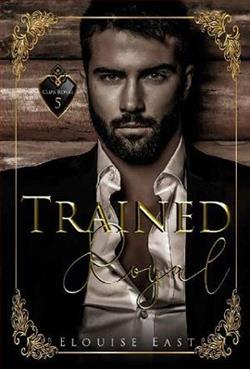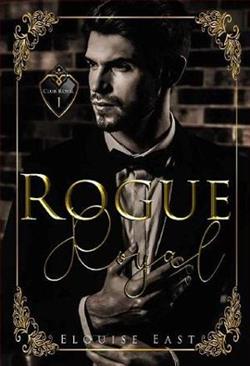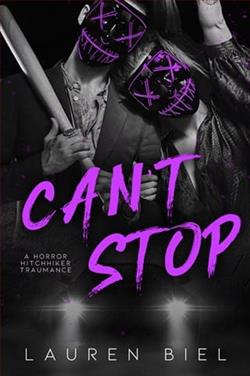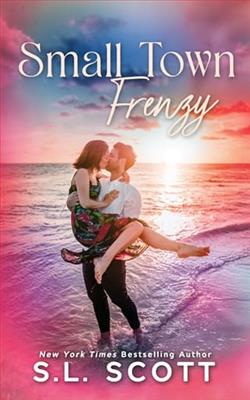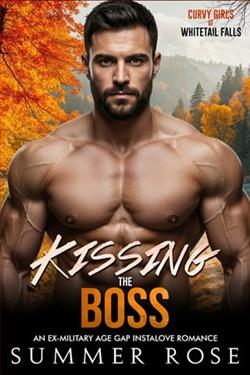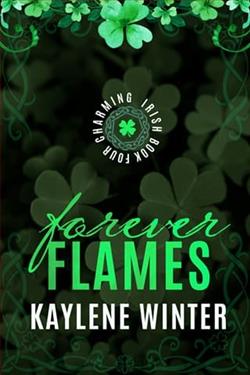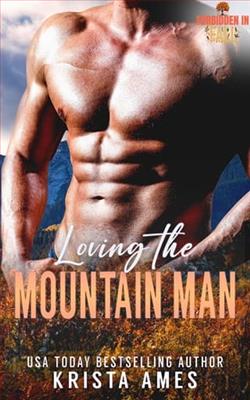Page 23 of Special Ops Seduction
“This is the general’s world, Jonas,” she said softly. “We just live in it.”
There was a rap on the door to announce their bags, and she was happier than she should have been for the interruption. Happy to put a little space between her reactions to him, her extremely visceral memory of that arm over her shoulders, and how vulnerable it made her feel that he was here. Jonas. Here. In this world she could barely tolerate herself, no matter how much her parents had changed the house.
“Well,” she said when they were alone in the room again, with bags, and her heart was still thudding. “I guess we should go find my mother.”
“In the greenhouse,” Jonas said, as if he’d previously thought greenhouses were myths.
“Birdie Gaines Wilcox is an avid gardener,” Bethan told him as if she didn’t hear his tone. “She’s won awards for her roses all up and down the Central Coast, and she takes them as seriously as my father takes his military career. Mock her at your peril.”
Jonas looked offended. “I would never mock your mother.”
“She’s mostly oblivious,” Bethan warned him. “Until she’s not.”
She led him back into the main part of the house, past the lovely reception rooms that had all been designed to pour one into the next. She took him out into the back, where a green lawn eventually gave way to the slope of the hill. Below lay the pool and its guesthouses, then farther on, the vineyards. But she took him in the other direction, down a path lined with a trellis bursting with bougainvillea, to the greenhouse at its end.
Inside the glass building, it was as humid as she remembered, especially compared to the dry air outside. And her mother was there, right where Bethan had left her, repotting something with those elegant hands of hers that had always seemed too aristocratic for the dirt.
Birdie Gaines Wilcox had never been called her legal name of Elizabeth a day in her life. She had been raised in Marin and gone to school in Claremont, as befit the daughter of a sixth-generation Californian. Bethan looked at her mother and saw all the usual things. The serene fall of her mother’s silvery hair that never took away from her elegant carriage, much less the steel beneath. She wore a pair of gold bracelets on one arm, and the sound of them gently clanking together was woven through every memory Bethan had of childhood. Bethan knew that when she moved closer there would be the faintest suggestion of Chanel No. 5, but only if she breathed in deep. Birdie’s idea of gardening clothes was the same as it had ever been—the crisp white pants and pretty blouse she had probably been wearing all day, with a heavy sort of apron over the front, where her gardening tools peeked out.
Bethan felt all the usual things, too. A rush of complicated affection. Shock that this woman who she always imagined as larger than life and not to be trifled with by man or time was... older. More frail, though she knew her mother would object strenuously to the use of that word. And on the heels of all that, the usual jumble of the things she felt because she was Birdie’s daughter and doomed to never match her in style or elegance. Bethan was the brutish, boyish one. The disappointing one.
“Darling,” Birdie said, looking up. “There you are. And looking so lovely.”
That was a dig, but Birdie pulled off her gardening gloves and held out her hands, so Bethan moved forward to take them. She leaned in to kiss her mother’s cheek, and sure enough, when she breathed deep, she could smell the Chanel. She wouldn’t be Birdie without it.
Part of her felt settled and soothed, while another part tensed.
That was also typical Birdie.
“Mom,” Bethan said. “I’d like to introduce you to Jonas Crow, my...”
To her surprise, she faltered. Because she’d pretended to be a number of things at different points in her military career and had been given the opportunity to do some character work in Alaska Force from time to time, but this was hermother. And this was Jonas.
And none of the words that she should throw in there to describe him suited him at all.
“Boyfriend,” Jonas supplied easily. In a friendly, engaging,livelymanner that about floored her.
He made it worse by moving forward with a huge smile plastered across his face, his hand outstretched.
“Such a pleasure to meet you,” Birdie murmured, taking his hand. And though Bethan was still thrown, she didn’t miss the steel-eyed gaze her mother raked over Jonas. Herboyfriend. “I know the general is looking forward to meeting you, too.”
“You have a housekeeper who led us through the house as if we were checking into a hotel,” Bethan said, incapable of keeping herself from sounding like a glum millennial. She cleared her throat. “She said Dad would be home for dinner.”
“Charlotte is a marvel,” Birdie said, which Bethan took to be a faint reproof for mentioning her. Or that the “beach house” was like a hotel these days, which her mother would surely find vulgar. “Have you seen your sister yet? She and her bridesmaids are staying down in the vineyard house. You should go say hello before drinks.” She smiled in her gracious, dismissive way. “At six. On the west patio.”
Bethan didn’t need another clue that her mother wanted her to leave, but when Birdie began to tug her gloves back on, she knew that was one. Jonas was still standing there as if he expected something else, like maybe freshly baked cookies or an inquiry into her well-being. So she did what any girlfriend would do and took his hand.
God, hishand—
But this was a moment to act, notfeel.She tugged him after her, out of the greenhouse. Where she instantly dropped his hand as if she were scalded. But her fingers retained the heat of him. The strength. The fact he’d chosen to allow her to drag him anywhere.
“Does your mother always talk to you like you’re a stranger?” Jonas asked.
Mildly enough.
The breeze was rustling through the palm trees. She could smell fire somewhere in the distance, but it was hard to tell if it was the charred remains of chaparral on far-off hillsides or a threat. It smelled precarious, just like home.
“She would never comment on a stranger’s appearance.” Bethan smiled at him because that was what she would do, probably, if he were her boyfriend. “Maybe you missed that she said I looked lovely.”








